1. “The Brady Bunch” – The Family Blueprint
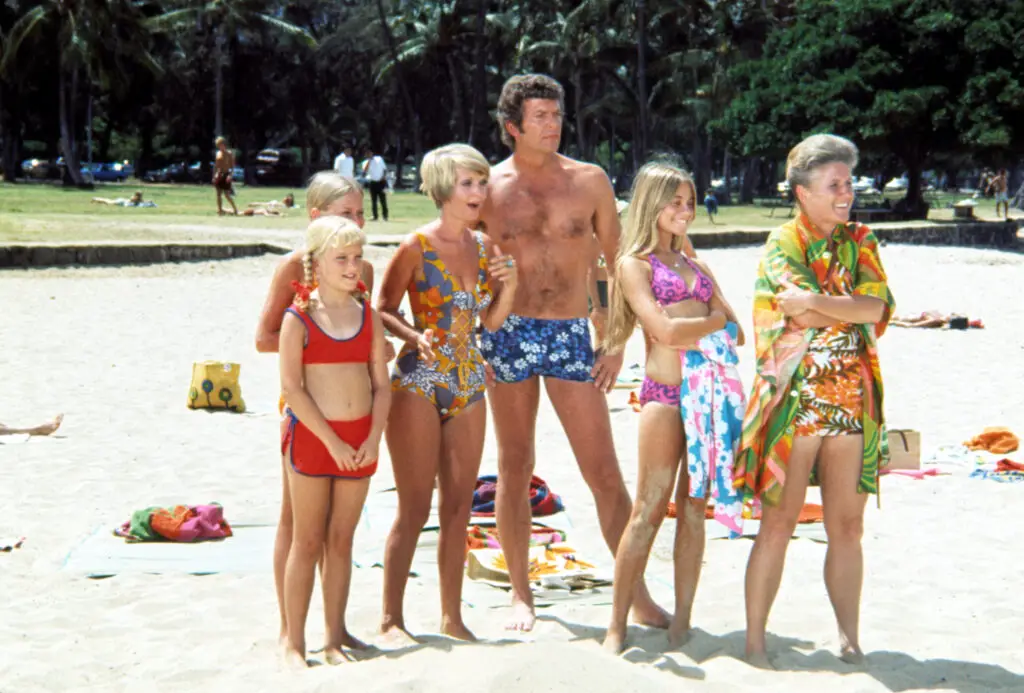
When you think of The Brady Bunch, you likely picture the wholesome family and their quirky, loving dynamic. But the theme song also reveals a lot about the era’s idealized view of the modern family. The lyrics outline the Brady family structure in a nutshell: a widowed father with three sons and a widowed mother with three daughters, blending together to form one large, all-American family. It’s not just catchy—it’s a clear representation of the traditional family values that were celebrated in the 1960s and ’70s.
The song’s upbeat tune hides a deeper, more nostalgic reflection of how society viewed family unity. The simplicity of the theme and its easy-to-remember lyrics helped shape the public’s perception of what a “perfect” family could look like, even though the Bradys were far from a typical family. It remains one of the most iconic examples of a theme song reinforcing cultural norms of the time.
2. “The Golden Girls” – Sisterhood and Independence
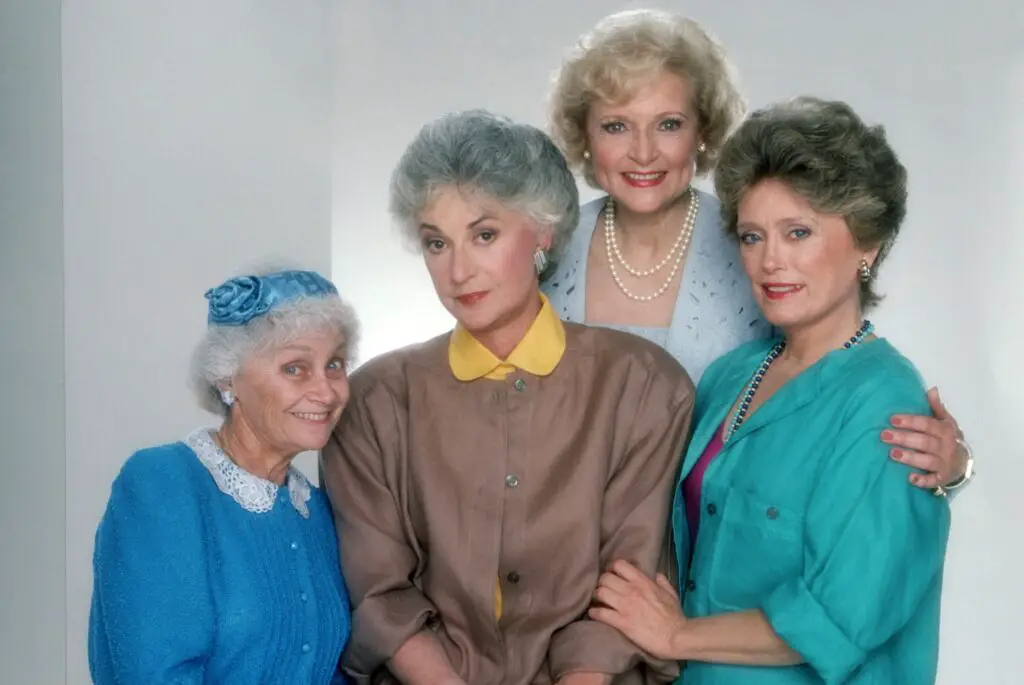
The Golden Girls theme song, “Thank You for Being a Friend,” is more than just a tribute to friendship—it’s a song that subtly emphasizes independence and self-sufficiency for women in their later years. The show was groundbreaking in its portrayal of older women who had their own lives, needs, and dreams. The lyrics, with their heartfelt message of gratitude, also reflect how these women, though older, were still vibrant and full of life.
While the show’s humor often revolved around the ladies’ interactions and personal quirks, the song’s sentiment is deeper. It speaks to the importance of lifelong friendships and the resilience that comes with aging. The song highlighted a time when women in sitcoms were beginning to break free from traditional roles, paving the way for more diverse depictions of older women on TV.
3. “The Jeffersons” – Moving Up
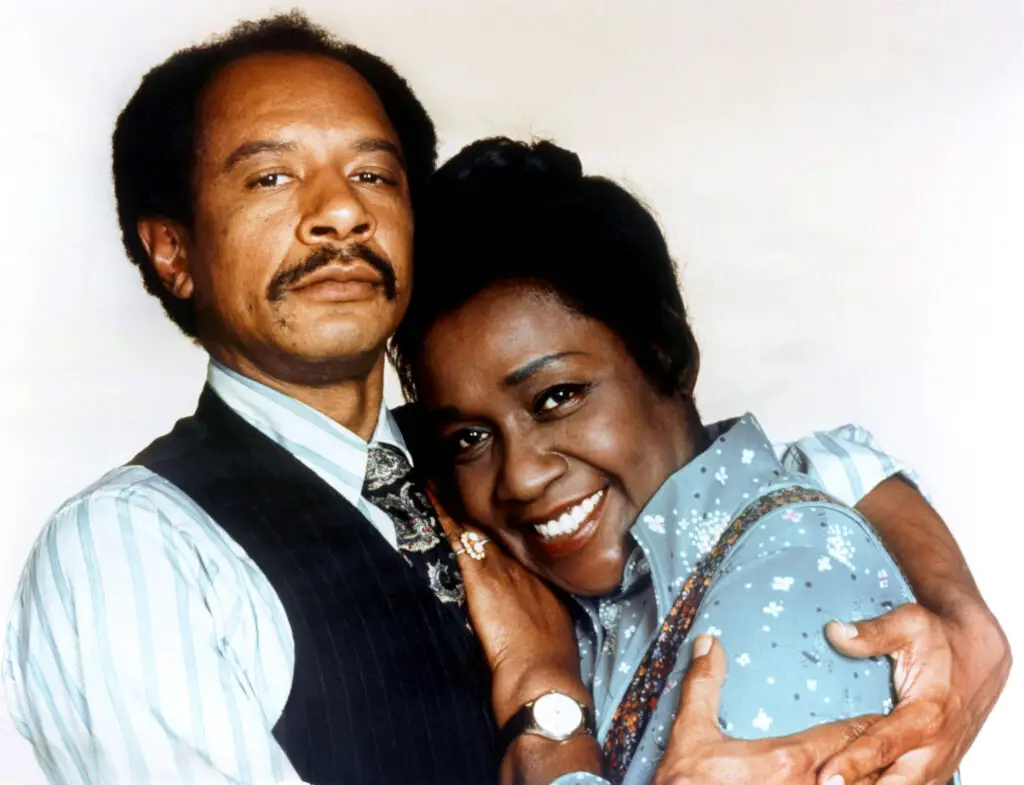
“The Jeffersons” theme song, “Movin’ On Up,” is not just a catchy jingle but a bold statement of ambition and progress. The lyrics reflect George and Weezy Jefferson’s journey from a working-class life to the upscale apartment they’ve worked hard to achieve. Their climb to the top symbolized the aspiration of many Americans, particularly Black Americans, who saw George’s success as a triumph against adversity.
The song’s upbeat tempo and playful tone mask the deeper social commentary on class and race. It’s a celebration of upward mobility, but also a subtle acknowledgment of the struggles that come with it. The song encapsulates a moment in history when the American Dream was being redefined, especially in terms of what it meant for marginalized communities.
4. “Happy Days” – Nostalgia for Simpler Times
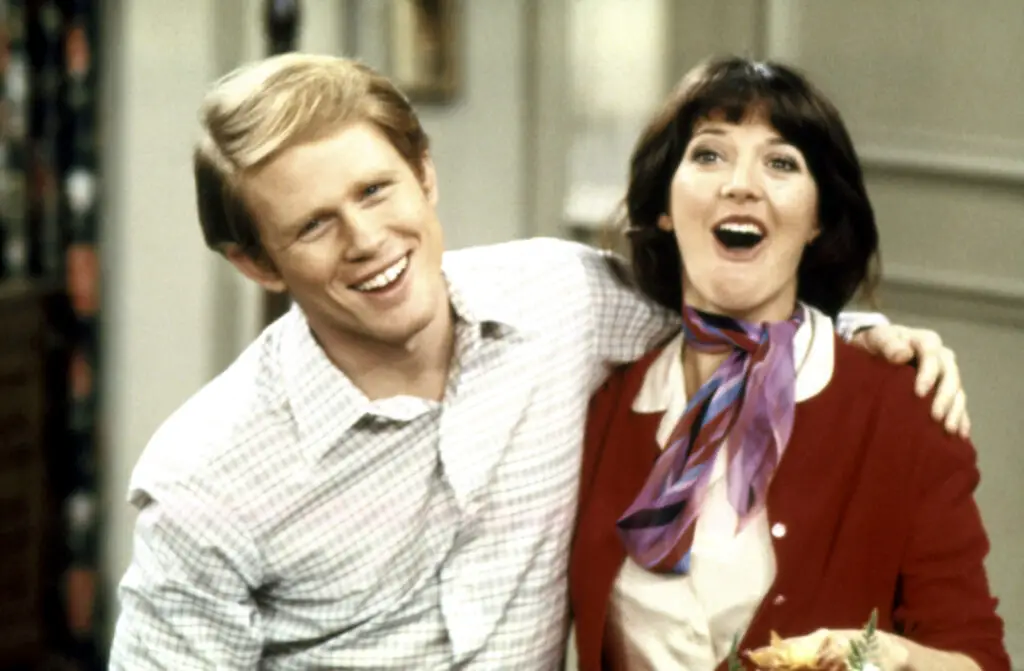
Happy Days is synonymous with the ’50s, but the theme song “Rock Around the Clock” brings us back even further, to a time when rock ‘n’ roll was just taking over the airwaves. The song reflects the show’s nostalgic look at life in the post-war years, celebrating a simpler, more innocent time in American history. The upbeat rhythm and energetic vibe of the song capture the spirit of the era and the carefree days of youth.
But what the song also reveals is how TV shows used music to evoke nostalgia for the past, even if that past wasn’t entirely accurate. The show’s portrayal of the 1950s was somewhat idealized, reflecting a time when family-friendly programming dominated the TV landscape. The theme song, in particular, taps into that yearning for a bygone era, even as it showcases the cultural shift of the ’70s.
5. “Cheers” – Where Everyone Knows Your Name
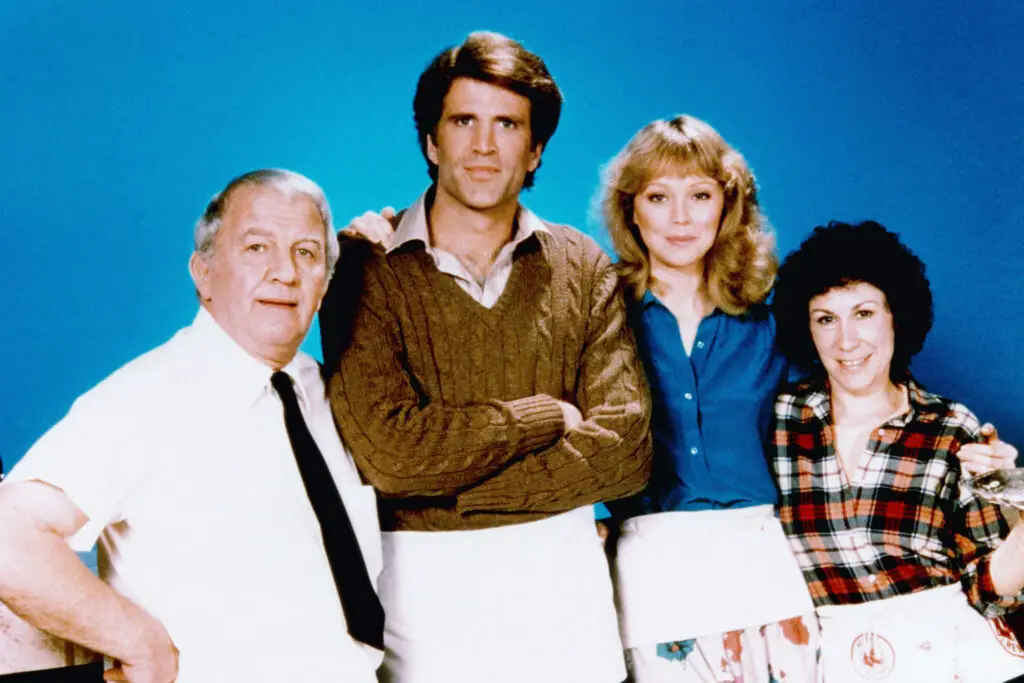
The theme song for Cheers, “Where Everybody Knows Your Name,” touches on the deep desire for community and belonging. The lyrics speak to the comforting feeling of walking into a place where you’re known and accepted. For the characters on the show, the bar was more than just a place to grab a drink—it was their sanctuary, a place to share laughs, sorrows, and everything in between.
Beneath the simplicity of the lyrics lies a reflection on loneliness and connection, universal themes that resonated with viewers. The song’s mellow tone and introspective lyrics spoke to a growing awareness of how people were searching for meaningful relationships in a world that often felt isolating. It was a reminder that no matter what, there’s always a place for you.
6. “The Mary Tyler Moore Show” – Female Empowerment
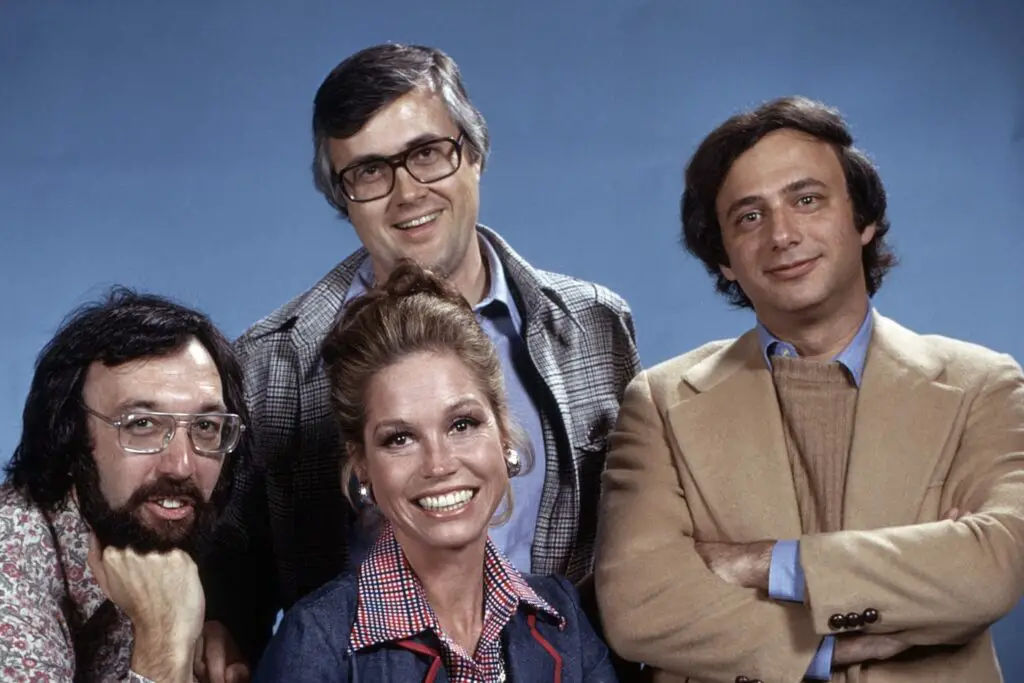
“The Mary Tyler Moore Show” was revolutionary in its depiction of a single, independent woman forging a successful career in a newsroom. The theme song, “Love Is All Around,” carries a hopeful message of self-reliance and the potential for love and connection in unexpected places. Mary Richards was an embodiment of the modern woman who could have it all—career, friends, and a fulfilling personal life.
The song’s lyrics, with their upbeat and optimistic tone, helped reinforce the show’s empowering message. While the show broke ground for women in TV, the theme song subtly mirrored the larger cultural shifts of the ’70s, when women were making strides in both the workforce and the home. It became a symbol of the changing role of women in society.
7. “The Addams Family” – Embracing the Unusual
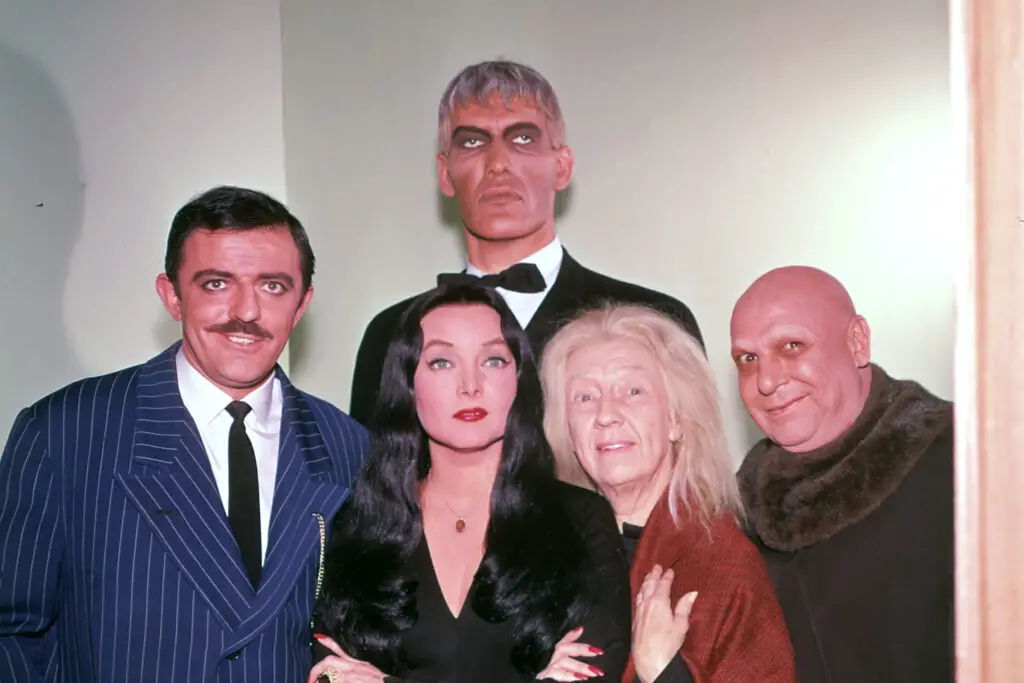
“The Addams Family” theme song is fun, quirky, and oddly endearing. The catchy tune is as much about the strange, macabre family as it is about their ability to embrace what makes them different. The song cleverly captures the show’s essence of celebrating the bizarre, with lyrics that introduce us to a family that’s not just eccentric—they’re proud of it.
The Addams family, with their dark humor and offbeat personalities, represented a counter-narrative to the traditional families seen on TV. The song itself became a symbol of individuality and nonconformity, reinforcing the idea that being different is not only okay—it can be a source of pride. It’s a cheeky reminder that sometimes, the most unusual people are the ones we should appreciate the most.
8. “The Fresh Prince of Bel-Air” – A Rags-to-Riches Journey

The Fresh Prince of Bel-Air theme song, with its signature rap by Will Smith, is more than just an introduction to the show’s premise. It’s a story of a young man from West Philadelphia who’s plucked from his environment and sent to live in the wealthy neighborhood of Bel-Air. The song’s lyrics tell the story of a dramatic life change—moving from trouble to opportunity, a classic rags-to-riches narrative.
The theme song’s fast pace and playful rhyme scheme reflect Will’s personality—fun, spontaneous, and unapologetically himself. But the deeper message is about social mobility and the stark contrast between different American worlds. Will’s journey represents the hope that anyone, no matter their background, can rise to success through determination and a bit of luck.
